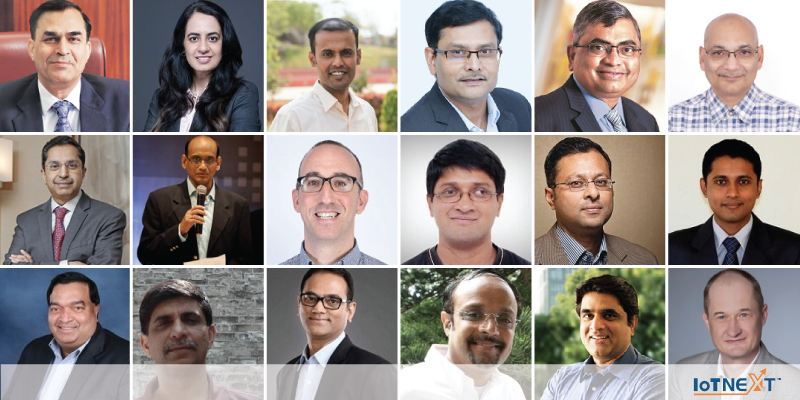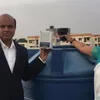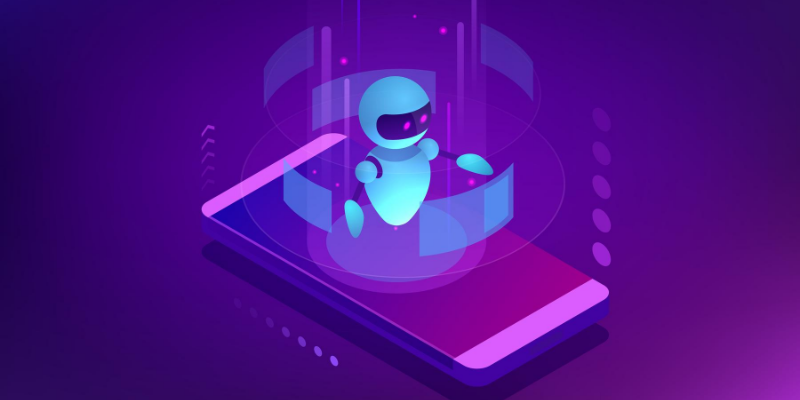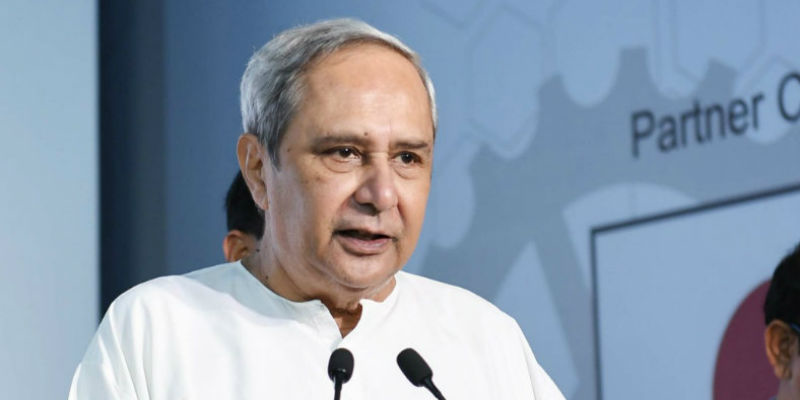India now has 1,500 IoT startups: industry outlook and startup showcase at IoTNext 2019
The fifth annual IoTnext conference in Bengaluru featured startups focusing on agriculture, smart homes, healthcare, factories, and more. Here are some of the founding teams, along with business insights from keynote speakers.
Launched in 2014, PhotoSparks is a weekly feature from YourStory, with photographs that celebrate the spirit of creativity and innovation. In the earlier 410 posts, we featured an art festival, cartoon gallery. world music festival, telecom expo, millets fair, climate change expo, wildlife conference, startup festival, Diwali rangoli, and jazz festival.

With keynote addresses, panel discussions, entrepreneur exhibitions, demo sessions and workshops, the fifth edition of the annual IoTNext conference kicked off this week in Bengaluru. The conference is organised by think-tank IoT Forum, a partnership between TiE Bangalore and IESA (India Electronics and Semiconductor Association). There are 500 delegates, 25 exhibitors and over 50 startups participating this year.
Awards are being given to the most promising IoT startups by sector: agritech (FarmGain Agro), healthcare (Dipitr Technologies), industrial IoT (Occipital Labs), emerging tech (AeroLogiks), and scaled-up startup (Smarter Home Technologies).
India now has around 1,500 IoT startups, according to the IoT Forum IoT Startup Directory 2019, released at the conference. The breakdown of startup locations across Indian cities is Bengaluru (720), NCR (180), Mumbai (94), Pune (91), Hyderabad (82), and Chennai (64), with dozens of other startups cropping up in Coimbatore, Kochi, Kolkata and other cities.
The IoT startups are spread across sectors, with managed services leading the pack: IoT services (480), transport (287), consumer (273), commercial (246), industrial (173), retail (173), agri (162), wellness (150), and utility (82).
The Indian IoT Start-up Directory was first published in 2016, followed by annual updates (see online version here). Since its launch in June 2014, IoTForum has held around 60 events across India. See also YourStory’s coverage of IoT Day 2019, and earlier IoT activities by TiE Bangalore: IoT SIG, IoT Next Summit, IoT startup showcase, SMAC Day, IESA Vision Summit, and Smart Mobility.
From the quantified self and smart home to ambient entertainment and intelligent factory, IoT has a wide range of applications. Over the years, there has been a dramatic increase in affordability of technology components of IoT like sensors, bandwidth, cloud infrastructure, open source libraries, and tools for analytics and AI/ML.
The conference organisers cited sources such as Angel.co (over 3,000 IoT startups listed globally) and CB Insights ($12.5B invested in IoT startups worldwide in the last five years by VCs). In India, the IoT Forum has tracked the rise of Indian IoT startups over the years: 2014 (123 startups), 2015 (275 startups), and 2016 (470 startups).
The theme of the conference this year is ‘IoT Matrix: Enhanced Reality and a Data-driven Future.’ Data holds the key to an enhanced and secure immersive environment, according to Arvind Tiwary, IoT Forum Chair.
“You can survive only if you are in the innovation business,” he emphasised. He traced a range of tech impacts such as the rise of ‘likes’ currency and customer intimacy at scale. The global digital ecosystem is spawning a wide range of business models as well.
Citizens will need to get used to living with paradoxes as a part of daily life, with seemingly contradictory thesis, anti-thesis and synthesis. “Get used to white water rafting,” Arvind joked.
“Start off with a focus on a clearly-defined and narrow customer segment. Then aim for at least 25 percent market share from overseas,” Arvind advised Indian IoT startups, in an interview with YourStory. Founding teams should carefully assess the hype around emerging technologies, and be prudent in deals involving governments or government-run businesses.
Thanks to the IoTNext Forum, the IoT startup ecosystem in India is receiving a boost from government schemes, spectrum advocacy, platform workshops, news coverage, and facilitating events. IESA, with over 300 institutional members, is also partnering with STPI on the IoT Open Lab initiative.
IoT permeates every aspect of individual, social, business and government life, according to Ravi Gururaj, President, TiE Bangalore. Agricultural applications of IoT can boost yields of individual farmers as well as entire states, observed Venkatesh Kumaran, President, AxLerate NOW.
These trends are reflected in the conference track themes: edge computing, security, industrial applications of AR/VR, and agri-sensor applications. There are also discussions around the larger issues of government policy, standardisation, corporate-startup partnerships, and globalisation strategies.
For example, IoT-driven inputs can inform farmers better on “what, where, when, and why” to plant certain crops. Benefits also extend to supply chain management, warehouse operations, and retail services.
“Thanks to its large domestic market and global offshoring base, IoT can help India become the data capital of the world,” said Satya Gupta, Vice Chairman, IESA. Government policy will play a key role in this regard.
IoT is set to drive an even bigger transformation than the first wave of the Internet, thanks to the fact that more devices than people are now online. However, this will put more pressure on humans to be even more creative than machines and algorithms, according to Supria Dhanda, Vice President and Country Manager, Western Digital, India.
Technology will also need to be humanised and made more inclusive, given the range of misconceptions and biases in society that are under risk of being amplified even more. The tech community should focus not just on productivity gains but also risk management and the larger public good. For example, public security and law enforcement can be improved, but not at the risk of creating a surveillance society.
Many innovative uses of IoT were showcased by the startups and exhibitors at the conference, as shown in this photo essay: Candiphi, FoodPrint, Karab, Smarter Homes, Ksens, RDL Technologies, Avench, Immunis IP, EmbedSense, Strack 360, Ignitarum, Lantronix, AgroBlock, Flippar, TechnoSphere, SenseGiz, Augmented Byte, MakerBot, iWave, Envitus, and DigiNest.
Now, what have you done today to stop in your busy schedule, and find ways to position for the tech-transformed world of tomorrow?



















Got a creative photograph to share? Email us at [email protected]!
See also the YourStory pocketbook ‘Proverbs and Quotes for Entrepreneurs: A World of Inspiration for Startups,’ accessible as apps for Apple and Android devices.












![[Funding alert] Workflow automation app Delightree raises $3M in seed round](https://images.yourstory.com/cs/2/b3bfb136ab5e11e88691f70342131e20/Delightree-1596266034279.jpg)